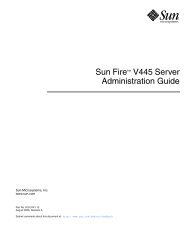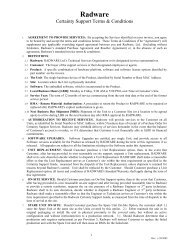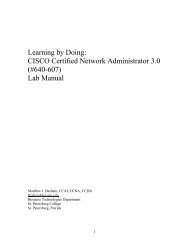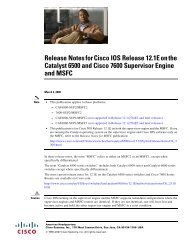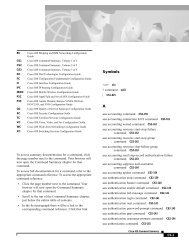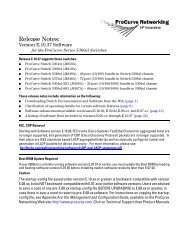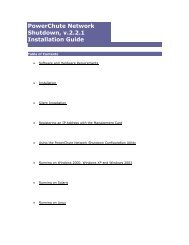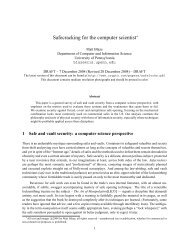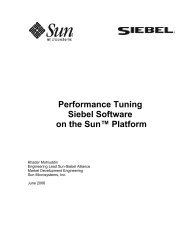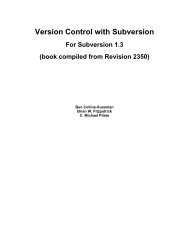Postfix Overview - Introduction - SCN Research
Postfix Overview - Introduction - SCN Research
Postfix Overview - Introduction - SCN Research
Create successful ePaper yourself
Turn your PDF publications into a flip-book with our unique Google optimized e-Paper software.
<strong>Postfix</strong> Configuration - Basics<br />
My own networks<br />
Page 4 of 5<br />
The mynetworks parameter lists all networks that this machine somehow trusts. This information can be used<br />
by the anti-UCE features to recognize trusted SMTP clients that are allowed to relay mail through <strong>Postfix</strong>.<br />
You can specify the list of trusted networks in the main.cf file, or you can let <strong>Postfix</strong> deduce the list for you.<br />
The default is to let <strong>Postfix</strong> do the work for you.<br />
Default:<br />
mynetworks_style = subnet<br />
The meaning of the styles is as follows:<br />
class<br />
Trust SMTP clients in the class A/B/C networks that <strong>Postfix</strong> is connected to. Don't do this with a<br />
dialup site - it would cause <strong>Postfix</strong> to "trust" your entire provider's network. Instead, specify<br />
an explicit mynetworks list by hand, as described below.<br />
subnet (default)<br />
Trust SMTP clients in the IP subnetworks that <strong>Postfix</strong> is connected to.<br />
host<br />
Trust only the local machine.<br />
Alternatively, you can specify the mynetworks list by hand, in which case <strong>Postfix</strong> ignores the<br />
mynetworks_style setting. To specify the list of trusted networks by hand, specify network blocks in CIDR<br />
(network/mask) notation, for example:<br />
mynetworks = 168.100.189.0/28, 127.0.0.0/8<br />
You can also specify the absolute pathname of a pattern file instead of listing the patterns in the main.cf file.<br />
My own network addresses<br />
The inet_interfaces parameter specifies all network interface addresses that the <strong>Postfix</strong> system should listen on;<br />
mail addressed to user@[network address] will be delivered locally, as if it is addressed to a domain listed in<br />
$mydestination.<br />
The default is to listen on all active interfaces. If you run mailers on virtual interfaces, you will have to specify<br />
what interfaces to listen on.<br />
You even have to specify explicit machine interfaces for the non-virtual mailer that receives mail for the<br />
machine itself: the non-virtual mailer should never listen on the virtual interfaces or you would have a mailer<br />
loop.<br />
Examples:<br />
Default:<br />
inet_interfaces = all<br />
Host running virtual mailers:<br />
http://www.porcupine.org/postfix-mirror/basic.html<br />
6/26/01




